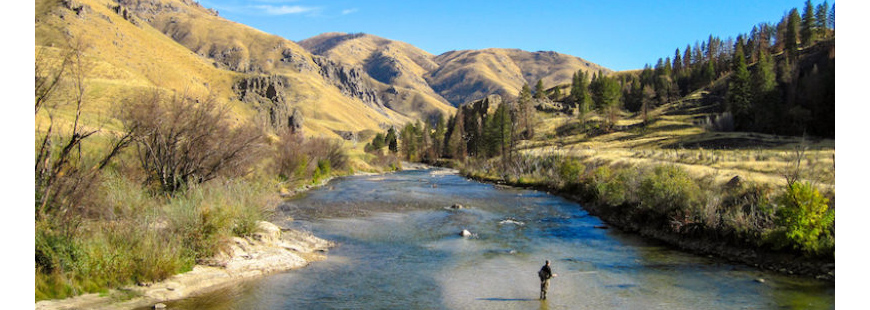This article first appeared in Moldy Chum and is reprinted with permission. Top photo: Fly fishing on the South Fork of the Boise River, Idaho
At the end of February, the United Nation’s Intergovernmental Panel on Climate Change (IPCC) released another massive report — this one pulled together by researchers from 67 countries — describing the international science community’s assessment of the current scope and expanding impacts of the warming climate. In stark terms, it essentially tells the world that the impacts of climate change are arriving faster and more severe than previously predicted. It calls for urgent efforts to move away from burning fossil fuels to provide electricity, fuel transportation, and make heat for buildings and industry. It makes it clear that we still have time to avoid the worst impacts, but that we have acted too slowly to not avoid all of them.
Cynics would tell you that the IPCC reports don’t ever get the media attention they rightfully deserve, but this year’s report had the unfortunate timing to be released only a few days after Russia invaded Ukraine. The footage of tanks rolling across the border and European cities being shelled drowned out the mainstream news of the report.
A key Mitigation report focused on assessing solutions and mapping paths forward was released a few weeks later, but it was drowned out by round-the-clock coverage of Will Smith slapping Chris Rock at the Oscars.
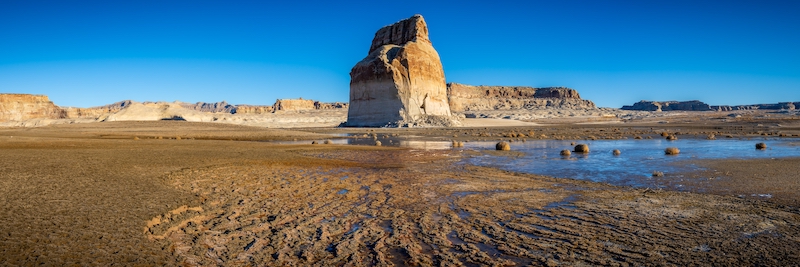
Fortunately, the two reports weren’t ignored entirely. Environmental and energy journalists and organizations covered both and grappled with their stark, urgent implications. The summary at the World Resources Institute is, frankly, intense. As an angler, reporting by Benji Jones at Vox caught my eye: Five signs of how climate change is unraveling Earth’s ecosystems.
Jones covers issues pertaining to biodiversity and ecological systems. Extreme weather and impacts on food security are already making an impact on human society, and those impacts will continue to accelerate and expand until we clean our energy systems sufficiently. I don’t want to downplay the daunting scale of the challenge or the looming impacts on human health and society, but when reading Jones’ reporting I was left wondering why I didn’t see more coverage of the recent IPCC reports in the angling media.
There were a few mentions for sure, from the voices leading the conversation on the topic, but you’d think concern over climate change would be universal and widespread among angling media and brands. As anglers, we are seeing the changes play out in our fisheries and watersheds in real-time, especially if they depend on cold water, an increasingly precious and fragile commodity.
We see the wildfires, the reduced snowpack and shrinking glaciers, the extreme flooding, and the summer heatwaves and drought dangerously raising water temperatures. Carp anglers might not be as concerned — after all, carp are fine in hot, dirty water — but trout, steelhead, and salmon anglers can already see the impacts on their home rivers and fish populations.
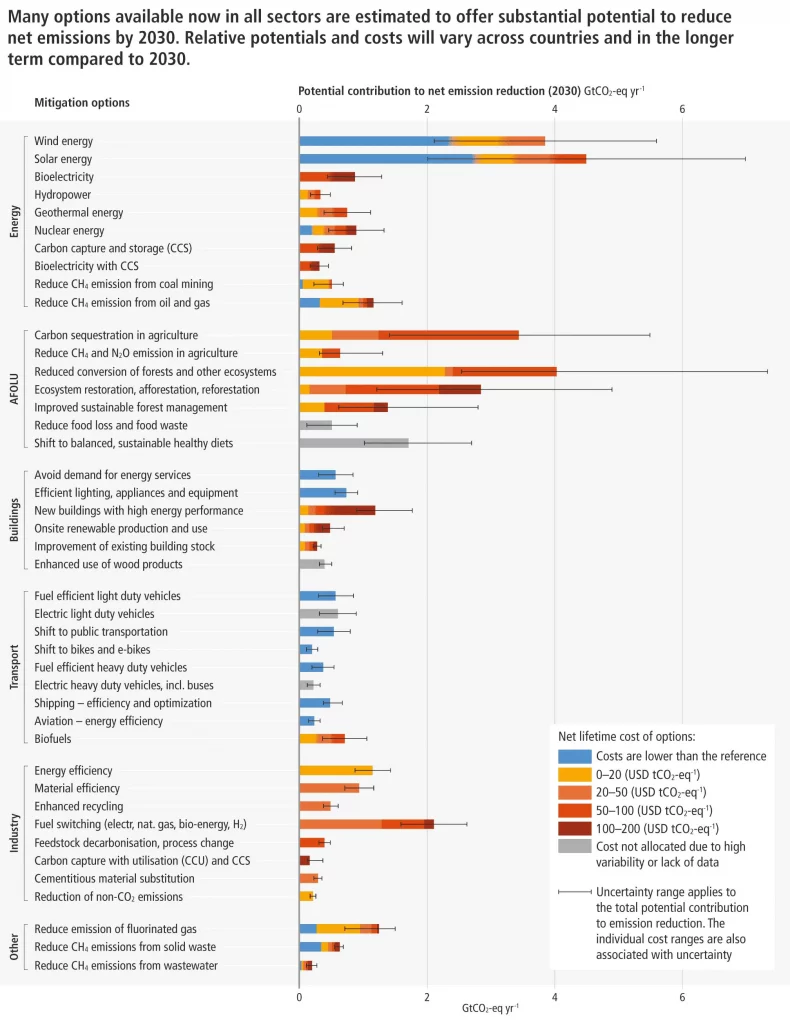
Fundamentally, stopping climate change comes down to energy production, efficiency, and utilization. We need to quickly deploy clean energy on a massive scale, shift fossil fuel burning machines to those powered by electricity or zero-carbon fuels, and find ways to make our food systems less carbon intense. Individuals can help this process on a personal level by adding solar panels to their homes or business, driving electric vehicles, changing their diets, disconnecting the gas line to their house and using electric appliances for heating and cooking, and supporting businesses that do the same. But, ultimately, the scale of change required to transform our energy systems requires supporting the political and economic policies needed to continue improving the clean energy technologies, make them affordable, and replace fossil fuel burning.
Decarbonizing our energy systems will be a monumental task filled with compromises and difficult decisions. It is necessary and urgent work. We have the tools and technology required, and we can use and move energy far more efficiently than we do now, but we need to accelerate the work.
These aren’t the only urgent tasks required.
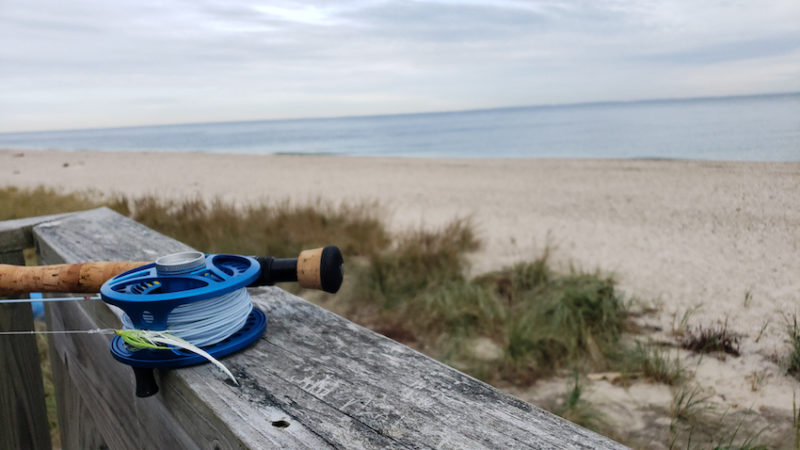
Intact ecosystems withstand climate shocks better than disconnected or deeply compromised systems. Today, too many of our salt and fresh water ecosystems bear years of accumulated degradation. This makes them more susceptible to climate impacts than they should be. Anglers see these changes and impacts, and we must lead the charge to demand that policy-makers invest in the restoration, recovery, and proactive management required to help watersheds and ecosystems build resilience in the face of climate change. These are changes that can be implemented immediately and there is no time to wait.
In ocean fisheries, anglers must demand policies that reduce bycatch and protect forage fish. Marine sanctuaries have been proven to help rebuild fish stocks and they need to be expanded. More research needs to be done to understand how fish species are shifting locations to find the temperatures and food they require, or how ocean acidification and marine heatwaves are affecting productivity and ocean carrying capacity. These impacts must be factored into allocations and season setting processes so that our fisheries aren’t overexploiting fish stocks and harvest levels prioritize long-term sustainability. Nearshore and estuary habitats must be protected and restored.
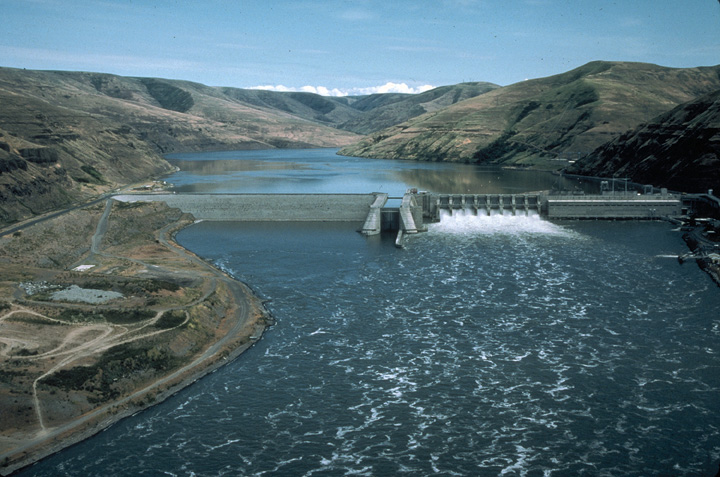
In freshwater systems, we must remove barriers to fish passage to reconnect habitat (deciding which dams will be removed to save salmon and which will remain to create electricity will be a crucial challenge), reduce pollution and improve water quality, reconnect floodplains and replenish groundwater, restore riparian habitat to cool the water, and better manage the forests and landscapes surrounding our rivers and headwaters. We need fishery management that accounts for hot water and errs on the side of caution to ensure fish are protected when they need it most.
The list goes on and on, but these are our marching orders. We must be clear-eyed. The IPCC reports, among others, are warning us and reminding us of the high stakes and urgency of this moment. If anglers want our fisheries to remain viable and sustainable going forward, we have our work cut out for us: We must work to protect and restore our waters while we help our communities shift to clean energy. Rebuilding ecosystem resilience, proactive fisheries, and decarbonizing energy systems must happen simultaneously.
We still have a window of opportunity to make huge strides forward for our fisheries and anglers should be leaders in this generational effort. A vision of our children and grandchildren responsibly fishing on intact, resilient waters — on rivers, lakes, and the sea — must be our lodestar.

